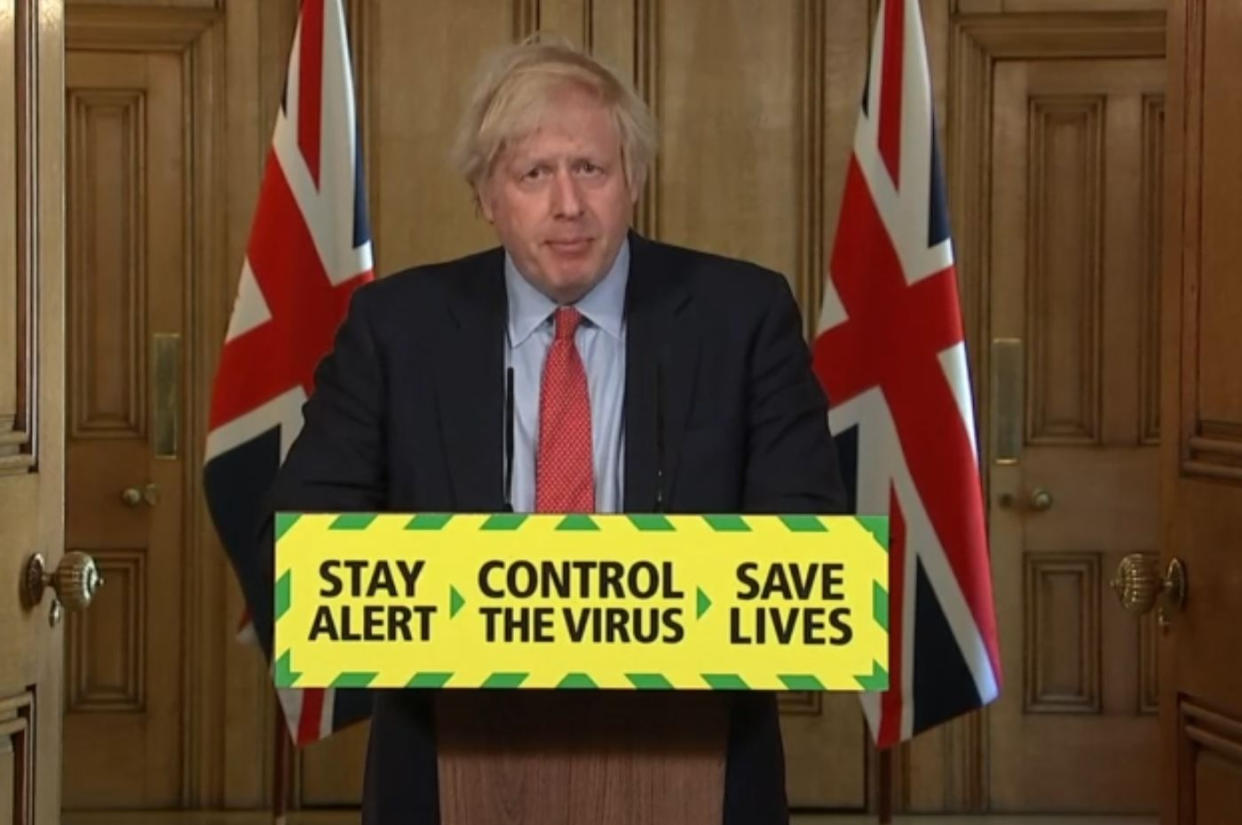Boris Johnson repeatedly stops his top scientists from answering questions on Dominic Cummings

Boris Johnson has refused to allow his top medical and scientific advisers to weigh in on the Dominic Cummings controversy.
Speaking at the daily Downing Street COVID-19 briefing, he said it was important they did not “get dragged into what I think most people recognise is fundamentally a political argument”.
The adviser’s drive to Durham to self isolate in March has led to accusations that he undermined the government’s message on lockdown and saw Tory and opposition MPs call for him to go.
Responding to a question from the BBC’s Laura Kuenssberg about whether Cummings had set an example that chief scientific adviser Sir Patrick Vallance and chief medical officer Chris Whitty wanted the public to follow, Johnson intervened.
“I know that you’ve asked Chris and Patrick but I’m going to interpose myself if I may and protect them from what I think would be an unfair and unnecessary attempt to ask a political question,” he said.
He added that “Durham Police said was that they were going to take no action and that the matter was closed and I intend to draw a line under the matter”.
He also stopped ITV’s Robert Peston doing so, and when asked by Sky’s Sam Coates later, both Vallance and Whitty declined to comment.
Although the UK is moving at different speeds, with all four nations either easing or preparing to relax restrictions, the government has committed to regularly providing notice that is is extending measures designed to slow the virus’s spread.
Also at Thursday’s briefing, Johnson confirmed England’s current lockdown rules will be continued but added that groups of six people can meet from Monday, at a two-metre distance and outdoors.
However, the next few weeks will see some primary school classes resuming and later, in mid-June, non-essential shops reopening.
The government has recorded 37,837 COVID-19 deaths and 269,127 confirmed cases across the UK since the outbreak began.
Coronavirus: what happened today
Click here to sign up to the latest news, advice and information with our daily Catch-up newsletter
Read more about COVID-19
How to get a coronavirus test if you have symptoms
What you can and can’t do under lockdown rules
In pictures: How UK school classrooms could look in new normal
How public transport could look after lockdown
How our public spaces will change in the future
Help and advice
Read the full list of official FAQs here
10 tips from the NHS to help deal with anxiety
What to do if you think you have symptoms
How to get help if you've been furloughed



